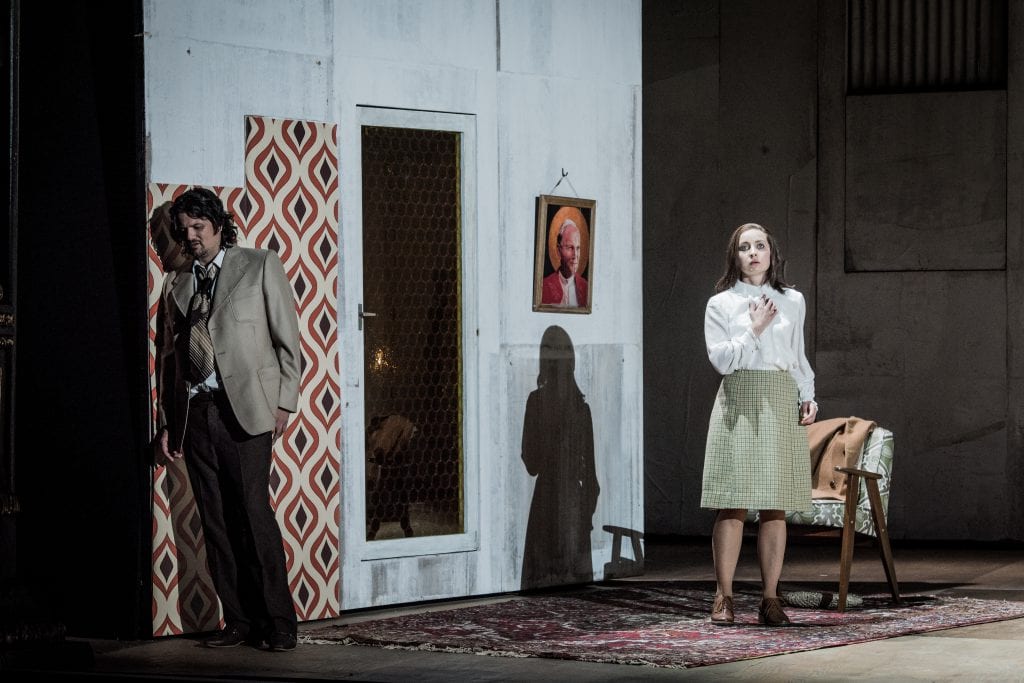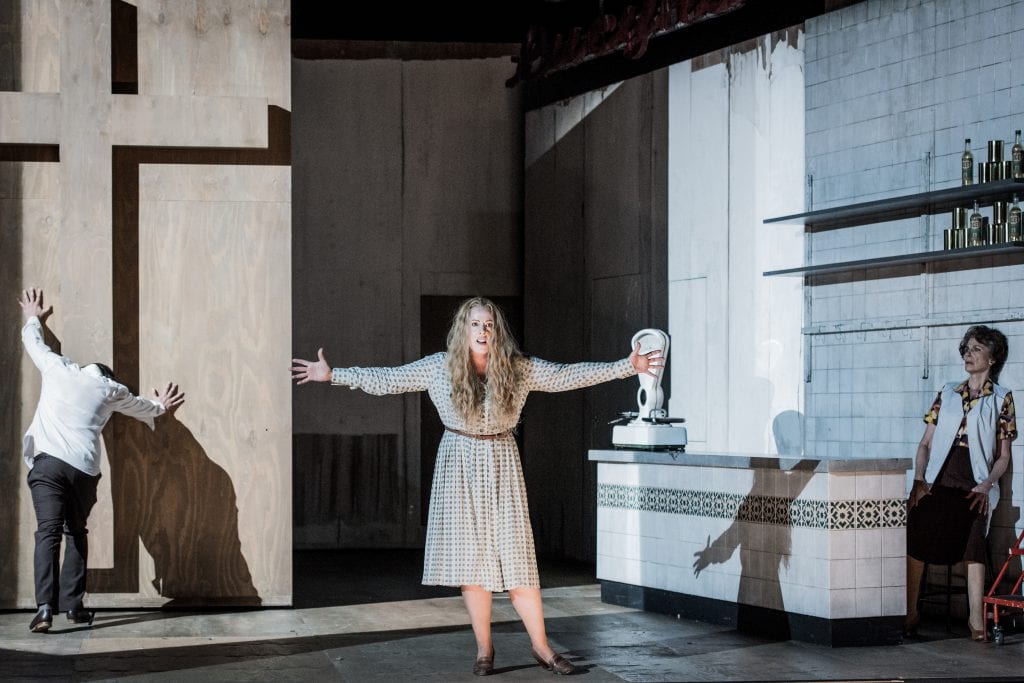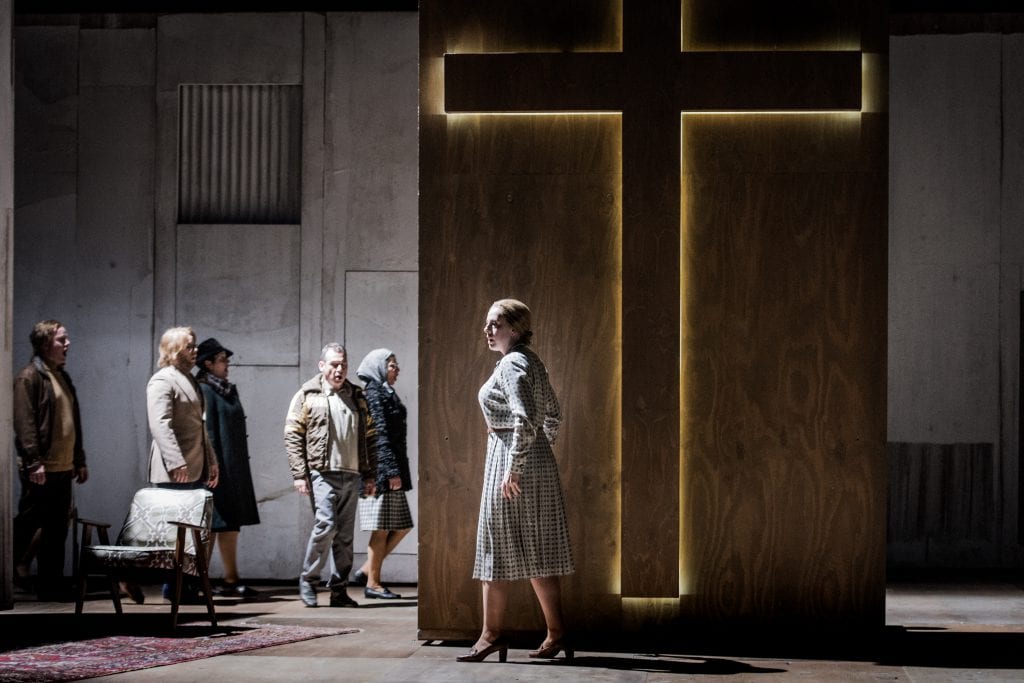Mascagni’s superb verismo masterpiece is being presented as part of Opera North’s imaginative Little Greats series. It is given in a startling new production by a young team led by director Karolina Sofulak. She relocates the action to a village in communist Poland and presents a resolutely drab and claustrophobic picture of a community under the twin thumbs of Communism and the Catholic Church. Were it not for a blazingly brilliant performance by Giselle Allen as Santuzza, the whole production might have faded away behind the peeling wallpaper of Lola’s house and the empty shelves of Mama Lucia’s shop.
The story is of the seduction and betrayal of the pious Santuzza by the weak and callous Turiddu. He beds her to revenge himself on the village beauty, Lola, who has led him on then married Alfio – in the original a carter, in this production a taxi driver! Santuzza desperately begs Turiddu to return to her loving arms. When he finally rejects her she takes her revenge. This is what came to be known as verismo – stories of forbidden love and violent revenge set amongst village folk, and not amongst gods, heroes and monarchs.
What sets Cavalleria Rusticana apart is the richness of the musical imagination that the young Mascagni brought to the score. And in this production, it was the music that eventually won me over, despite doubts about the production. In particular the splendid Giselle Allen gave a portrayal of the tormented Santuzza that not only brought the music thrillingly to life but conveyed her conflicted motives – thwarted love, catholic guilt and crazed revenge – in a more powerful way than I have heard in many previous productions.
There are other good performances – Phillip Rhodes is a tough and credible Alfio, Katie Bray as Lola is a sad figure torn between the two men that love her rather than the usual vamp and Rosalind Plowright is not the usual weak mother blind to her son’s wickedness. Jonathan Stoughton as Turiddu, however, sounded insecure in the difficult prelude and didn’t convince until he let rip in the final aria before he surrenders to his fate.
Sofulak presents the action on a stage where all the locations of the drama are on view throughout. This can be disconcerting – Mama Lucia (a steely and implacable Rosalind Plowright) sitting behind the counter of her food shop observes much of her son’s misbehaviour. Santuzza pleads with Turiddu to return to her while watching him make love to Lola. And the climax of the Easter hymn, splendidly sung by the Opera North chorus, asks us to see Turiddu as the crucified Christ – with Santuzza as Magdalen. The final tragic moment takes place not off-stage but in a tiny red taxi in full view of the other characters and of the audience.
This is not a production for the faint hearted and it challenges some preconceptions about the work – but for the visceral appeal of the drama, and most of all for the stunning singing of Giselle Allen, it is worth a visit.





